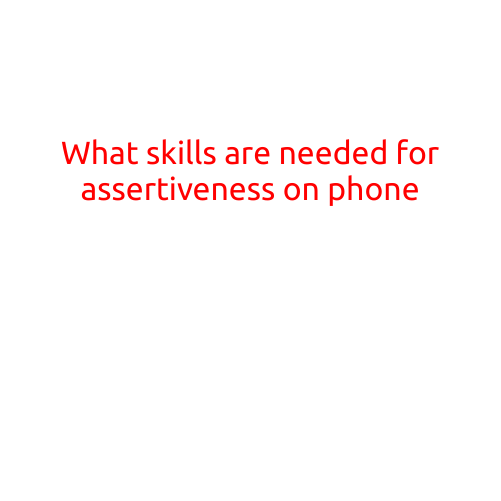
How Can You Master Tone of Voice in Phone Calls?
Effective communication is crucial in any business setting, and phone calls are no exception. Whether you’re a customer service representative, salesperson, or simply a manager trying to convey important information, a strong tone of voice on the phone can make all the difference. In fact, research shows that the tone of voice can convey up to 93% of communication, making it a vital aspect of phone conversations.
So, how can you master tone of voice in phone calls? Here are some tips to help you achieve effective communication over the phone:
1. Be Authentic and Confident
When speaking over the phone, it’s essential to be yourself. Authenticity shines through in your tone of voice, and people are more likely to trust and respond positively to someone who is genuine. Confidence is also key, as it conveys authority and helps to build credibility.
2. Use a Friendly and Approachable Tone
A friendly and approachable tone can go a long way in building rapport with your caller. Avoid sounding too formal or robotic, as this can come across as distant or uninterested. Instead, use a warm and inviting tone that makes the caller feel comfortable and valued.
3. Be Clear and Concise
When communicating over the phone, it’s essential to be clear and concise. Avoid using jargon or overly complex language that may confuse the caller. Instead, use simple and straightforward language to convey your message.
4. Use Inflection and Emphasis
Inflection and emphasis are crucial tone of voice techniques to master. Varying your pitch and tone can help to convey emotion and emphasis, making your message more impactful. For example, using a higher pitch to convey excitement or a lower pitch to convey seriousness.
5. Don’t Apologize Too Much
While apologizing is important in certain situations, apologizing too much can come across as insincere or weak. Use apologies sparingly and only when necessary, as excessive apologizing can undermine your authority and credibility.
6. End on a Positive Note
Ending a phone call on a positive note is essential for leaving a lasting impression. Use a friendly and upbeat tone to wrap up the conversation, expressing gratitude and looking forward to future interactions.
7. Practice Active Listening
Active listening is a critical skill for phone conversations, as it demonstrates your interest and attention to the caller’s needs. Make eye contact (even if you’re not in a physical meeting), and restate or summarize what the caller has said to ensure understanding.
8. Use Silence Effectively
Silence can be a powerful tool in phone conversations. Avoid filling every moment with words, as this can come across as pushy or aggressive. Use silence to allow the caller to speak, to process information, or to emphasize a point.
9. Manage Your Pace
Pacing is crucial in phone conversations, as it can affect the flow of communication. Speak at a moderate pace, avoiding sudden changes in tone or volume. This will help to keep the caller engaged and interested.
10. Record Yourself
Finally, record yourself during phone calls and listen back to identify areas for improvement. This will help you to develop a more self-aware tone of voice and make adjustments as needed.
By incorporating these tips into your phone calls, you can master your tone of voice and become a more effective communicator. Remember to be authentic, confident, and friendly, and to use inflection, emphasis, and active listening to convey your message. With practice and patience, you’ll be well on your way to developing a tone of voice that resonates with your callers and drives results.





